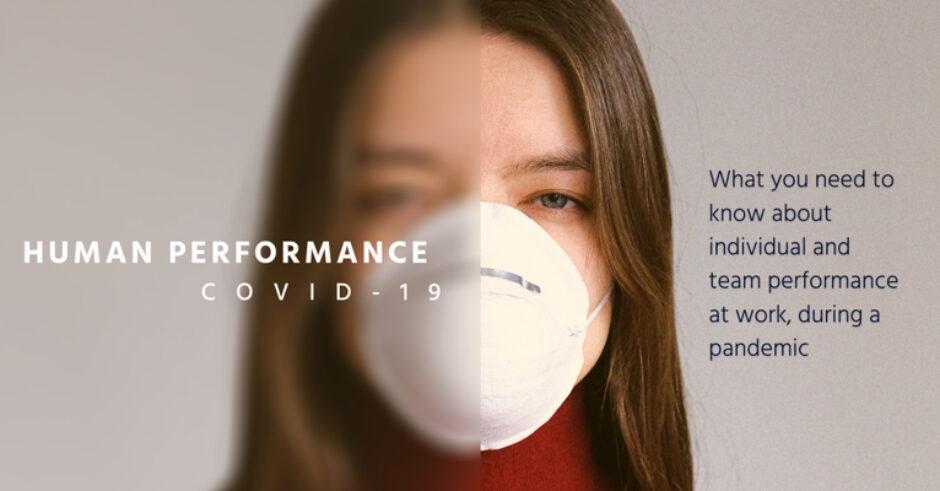We’re in the midst of an ongoing, global pandemic, that’s disrupting multiple areas, of many peoples’ lives. Including human – individual and team – performance at work. ‘Pandemic performance’ is one of many new phrases, Covid-19 has spawned.
Today’s approach to human performance at work, has to be co-created and personalised, and continually adapt to evolving conditions and needs, of individuals, and teams.
What’s new
Whilst the pandemic continues, so will the psychosocial hazards for employees.
“Depression risk is 56% higher now than pre-pandemic, while anxiety risk is 45% higher than in February.”
180 surveys of 75,000 employees, across10 different countries during COVID-19 revealed:
- “71% of employees are concerned.
- 60% are struggling to find a good work-life balance.
- 33% are experiencing low levels of effectiveness.
- 25–50% report reduced productivity due to other distractions.”
The Australian Council of Trade Unions Working from Home Report published in November 2020 highlighted the majority experienced increased workloads of 4 hours or more, a week, and
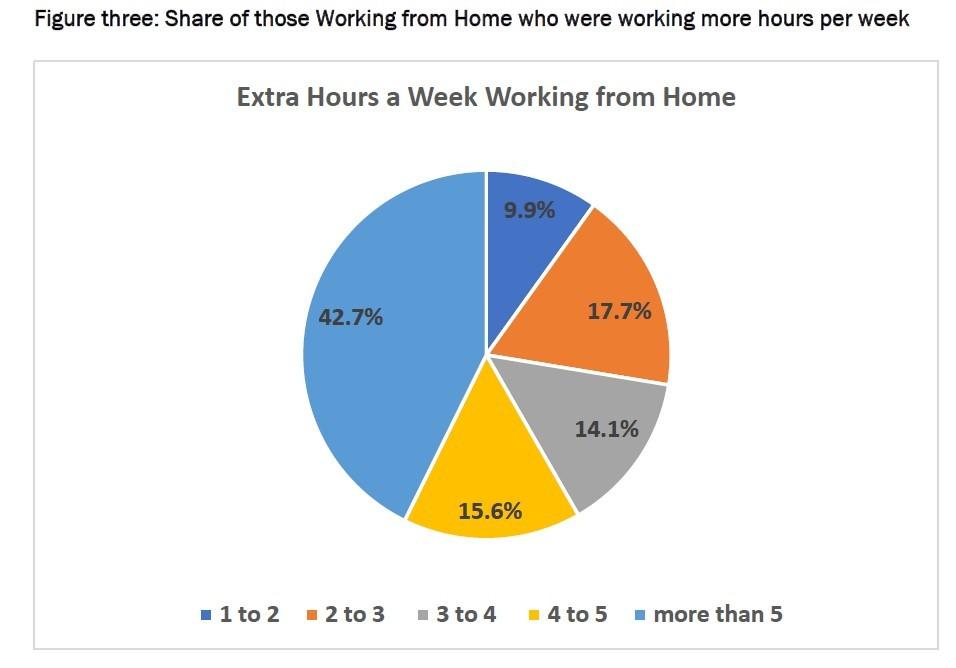
- “49% of home-workers are experiencing mental health issues (women 53.9%, men 46.3%),
- 48% are having difficulty separating work/home life,
- 42% do not have a suitable workstation or equipment
- 26% feel unsupported by the employer
- 3% reported online bullying or harassment
- 2% said they were exposed to family or domestic violence.”
Human cognitive function is entwined as part of our non-physical health, our psychosocial health
We know our human health is holistic, and our physical health and psychosocial health – emotional, social, spiritual and cognitive (mental) – are entwined.
We’re designed that way, so when we’re feeling fear, anxiety or excluded, our ancient survival system, our brain, triggers things like tension in our shoulders, feeling nauseous, or hasty, ‘in the moment’ decisions. All part of our response to perceived danger to our health and safety. This reality is important to acknowledge when optimising ‘pandemic performance’ at work.
- “Sustained attention, the driver of task completion, was down 31% in August when compared to pre-pandemic.
- Planning, the capacity to make decisions and drive strategy, was down 15% since February.”
- Mental health issues, and related impairments to cognitive performance, will “far exceed the duration and impact of COVID itself,” said Garen Staglin, chairman of One Mind at Work.
SuperFriend’s Australian research, published in October 2020, found “mental health concerns are the most common reason for lower productivity this year, affecting 3 in 5 workers (59.7%). Physical health issues during the pandemic affected productivity for less than 1 in 3 workers (29.8%).”
IBM’s research on “COVID-19 and the future of business”, notes
“executives are tasked with defining their organizations’ vision. But it can be hard to focus if they are continually putting out fires. While workforce safety and resilience, cost management, and organization agility emerge as top priorities for the short- and longer-term, the pandemic has amplified old business fears and introduced new ones.”
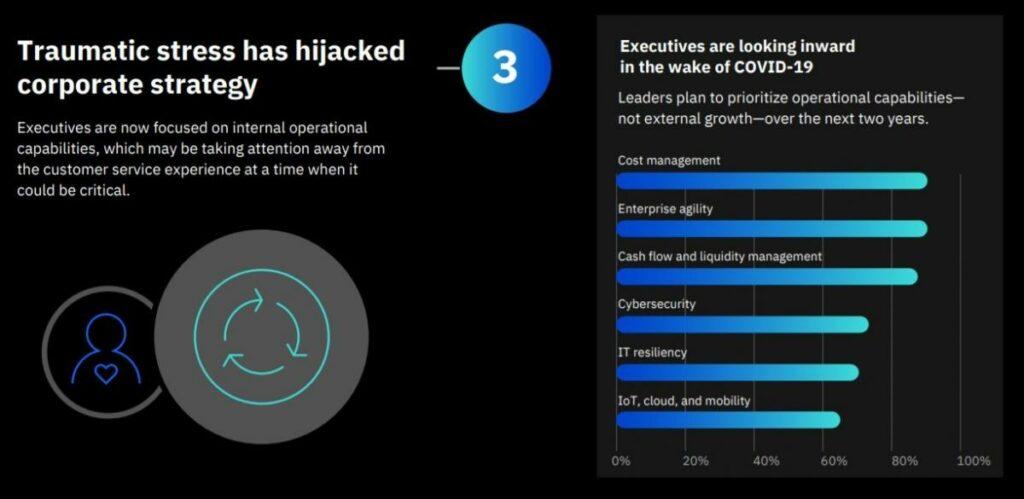
Consult experts
“when faced with a series of overwhelming challenges in a crisis, it’s best to consult experts on where to focus – and those experts are your employees. Understand how employees are doing, what’s working well, what isn’t, and what employees’ current needs are.”
IBM’s research on “COVID-19 and the future of business”, also found
“executives are clearly telling us they plan to emphasize workforce safety and security .. but only ~50% of employees believe their employer is genuinely concerned about their welfare.
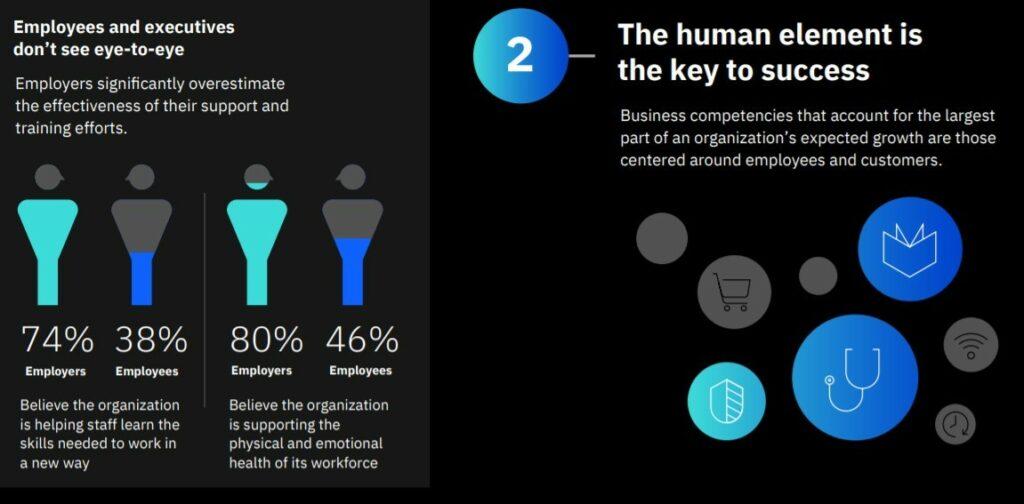
Our research highlights a gaping chasm between what executives think they are offering their employees, and how those employees feel: employers significantly overestimate the effectiveness of their support and training efforts.”
Change performance objectives
Australia’s Fair Work Commission’s (FWC) recent decision, on a unfair dismissal decision, determined the employer had failed to consider how they managed an employee by setting unreasonable performance expectations during COVID-19.
“The FWC considered that the employer had created a “cocktail of unreasonable expectations” on the employee. The employer had also failed to take into account the employee’s “natural anxieties” about COVID‑19, in terms of its impacts on her job security if the business was to be severely impacted.”
Gartner’s recent research on performance management during Covid-19, highlight
“objectives that don’t consider the impact of COVID-19 on productivity, employee morale and resourcing seems confusing, and frankly, unfair.
Conversations during a pandemic should begin with questions about employees’ wellbeing and safety as a priority – not questions around productivity or even performance. “
Gartner’s research found in June 27% of organisations didn’t conduct / mandate annual performance reviews, and 22% are asking managers to focus more on behaviours than outcomes when assessing performance.
And from Gallup’s Performance Management Must Evolve to Survive COVID-19:
- “most performance management systems are too rigid for uncertain times.
- The truth is that everyone is experiencing something different right now. And life outside of work has a much greater impact on work itself.
- In addition, people’s emotions and moods change from day to day, from hope to fear.
The new approach to performance management will have to be more collaborative, adaptive and individualized based on conditions on the ground.”

Culture Amp on why it is necessary for organizations to re-evaluate aspects of their performance management system to better respond to the current context of their organizations warns,
“carrying on with your performance management process without any amendments will likely lead to negative experiences for your employees and biased information to make decisions on, such as decreasing short- and long-term motivation, increasing burnout, declines in perception of fairness, and could even result in managers holding back critical feedback.
Adjusting performance management processes can have a big impact on how employees view their workplaces as well as their roles in it.”
Safety and empowerment
IBM’s research on “COVID-19 and the future of business”, also found
“before coronavirus, sustainability strategies were largely centered on environmental issues .. faced with a human health crisis, environmental sustainability became joined with issues of personal safety.
Health and safety have been conjoined in a new, expanded, and more complex definition of sustainability. Executives’ concern for sustainability topics has skyrocketed in two years.”
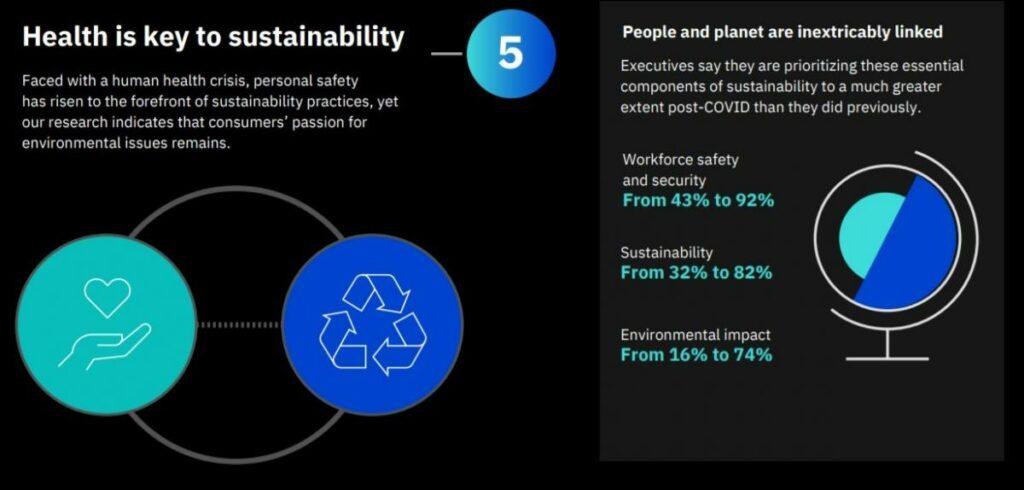
NSW Health advise to see the Covid-19 pandemic, through the lens of a collective, traumatic event, not as a short, discrete crisis.
“Trauma can occur when events / circumstances overwhelm our ability to cope causing extreme or toxic stress. It is an enduring adverse response involving intense fear, feelings of helplessness and being out of control.”
In phases of trauma recovery, the first phase is:
“guiding principles are the restoration of safety and empowerment .. it is the ability to live in the present.”
“immediately following the [onset of the] crisis, best practice guidelines recommend promoting a sense of safety and stability.
The core experiences of psychological trauma are disempowerment and disconnection from others.
Being able to move and do something is a critical factor in determining whether or not a horrible experience will leave long-lasting scars.”
The long established Judith Herman Model of recovery from a crisis, informs how organisations can create a sense of safety and stability, that enables optimisation of individual and team performance at work, whilst the global pandemic continues.
Realistic optimism and change, and role of emotions
The destiny of every human performance – by individuals and teams – is largely determined by what they feel.
“feelings are always messengers of needs, the next step is to follow the feeling to the need.
Meeting needs unlocks positive feelings and energy.
Needs are best met through action — i.e., behavior — not just messaging.
Until we change what people see and feel us doing, we fall short of the motivational opportunities at our fingertips.”
Why enabling employees’ emotional expression – through which we learn about what’s important to us, and what we need – is vital during Covid-19.
The research of Professor Sigal Barsade, of Wharton, and Associate Professor Olivia A. O’Neill, of George Mason Univeristy and of Center for the Advancement of Wellbeing, informs a modality – based on influencing emotional culture – a very practical way workplaces can identify what individuals and teams need to be their best during Covid-19, through the effective use of emotional expression.
Another safe, change modality to use, during times of significant stress and loss associated with the Covid-19 pandemic, is Appreciative Inquiry. Based on positive psychology, it focuses on a ‘positive core’, rather than negatives and deficiencies.
The paper A changing world, again. How Appreciative Inquiry can guide our growth, talks about the pivotal role of realism.
“We can focus upon what we can control as an adaptive practice to manage stress and increase resilience.
A strategic response fueled by generativity, curiosity, and realistic optimism .. can ameliorate the pervasive negative impacts on individual and system health.
This experience reinforces in each of us that there is so much we cannot control, however, there are aspects of our realities that we may be able to impact.”
Duty of care
In addition to meeting compliance obligations regarding setting reasonable and achievable, expectations for employees during a pandemic, there’s this other compliance obligation reminder, from Safe Work Australia.
“This is a stressful time for all Australians, and you must do what is reasonably practicable to eliminate and reduce the psychological risks to workers and others at the workplace. COVID-19 may have introduced or increased psychosocial hazards in your workplace.
Workers often know what the issues are and have ideas about how to manage them. Once you have consulted workers, determined appropriate measures and put them in place, continue to review how you are managing the risks to check your measures are working.”

